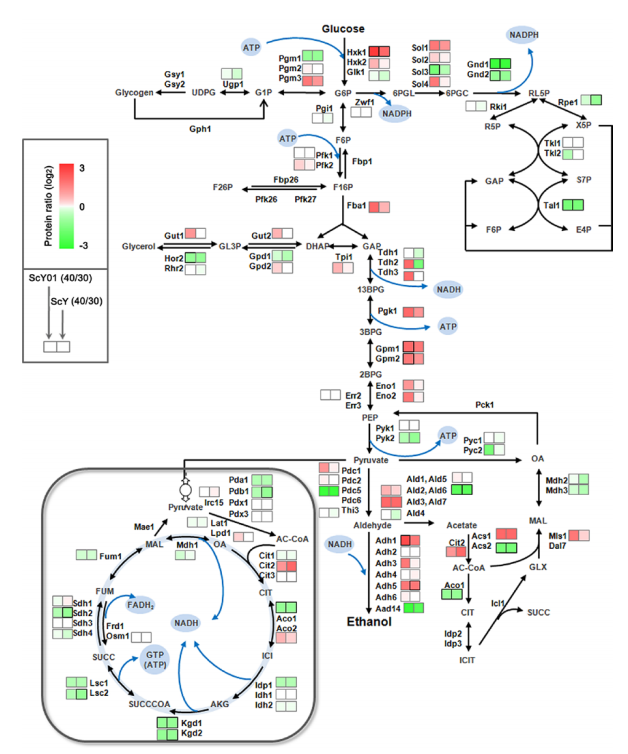Saccharomyces cerevisiae is the most widely used microbial species for ethanol production in traditional food industry and emerging biofuel industry. As the temperature of large scale fermentation is usually above 40 °C, which is higher than the optimal growth temperature of the yeast, a yeast strain with stronger thermotolerance is highly valuable for industrial application. It is expected largely reduce cooling costs and help preventing contamination. However, the S. cerevisiae industrial strains with superior thermotolerance have not been explored in any proteomic studies to elucidate the thermotolerance mechanism. Recently, research led by WANG Qinghong Group and SHUI Wenqing Group at Tianjin Institute of Industrial Biotechnology, Chinese Academy of Sciences provides new insights into the mechanism of thermotolerance distinct from heat shock response through proteomic analysis of industrial S. cerevisiae strains. They obtained a new diploid strain ScY01 through evolutionary engineering of a parental industrial strain. It showed even higher resistance to prolonged thermal stress. In the present study, they focused on the expression pattern changes in thermotolerant responses of the industrial strain at the proteomic level to infer the transcriptional/translational aspect of the molecular basis. To this end, they performed iTRAQ-based quantitative proteomic analysis and further analyzed the transcription factors underlying the proteomic perturbation. As a result, a co-chaperone Mdj1 and a metabolic enzyme Adh1 were selected to investigate their roles in mediating heat-stressed growth and ethanol production of S. cerevisiae. Their proteomic characterization of the industrial strain led to comprehensive understanding of the molecular basis of thermotolerance, which would facilitate future improvement in the industrially important trait of S. cerevisiae by rational engineering. The study entitled “Understanding the mechanism of thermotolerance distinct from heat shock response through proteomic analysis of industrial strains of Saccharomyces cerevisiae” has been published in Molecular & Cellular Proteomics. Research assistant Yun Xiong from Bio-MS group is the first author. This work is a collaborative project of Qinhong Wang group and Wenqing Shui group, and it is supported by the National Natural Science Foundation of China (31170782), the National High Technology Research and Development Program of China (863 Programs 2012AA101807, 2014AA021905). 
Regulation of central metabolic enzyme expression in the parental strain ScY and the evolved strain ScY01 grown under long-term thermal stress (Image by Dr. SHUI Wenqing ’s group) |